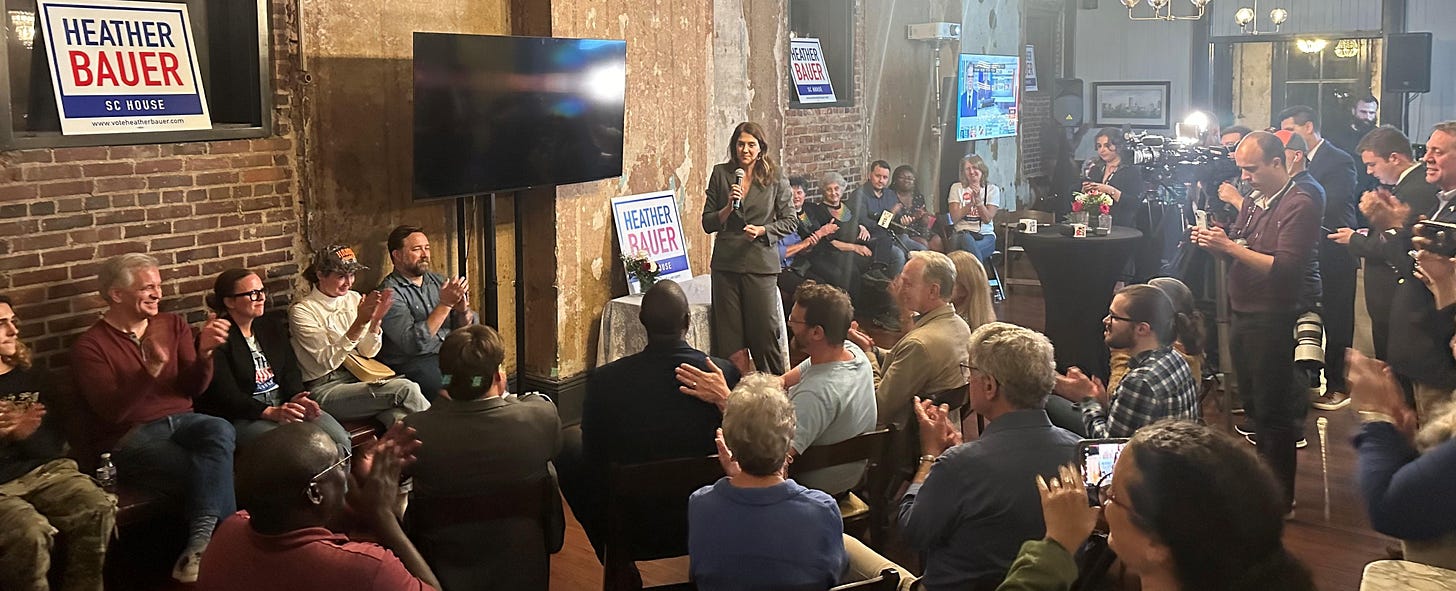Why Heather Bauer Won (When Everyone Else Lost)
For the second election in a row, state Rep. Heather Bauer (HD-75) was one of the few Democrats in South Carolina able to do the thing that matters: win a competitive race.1
In 2022, Bauer shocked the state by unseating 10-year Republican incumbent, Kirkman Finlay, with an insurgent campaign that went all-in to convey one simple message to Columbia voter…




